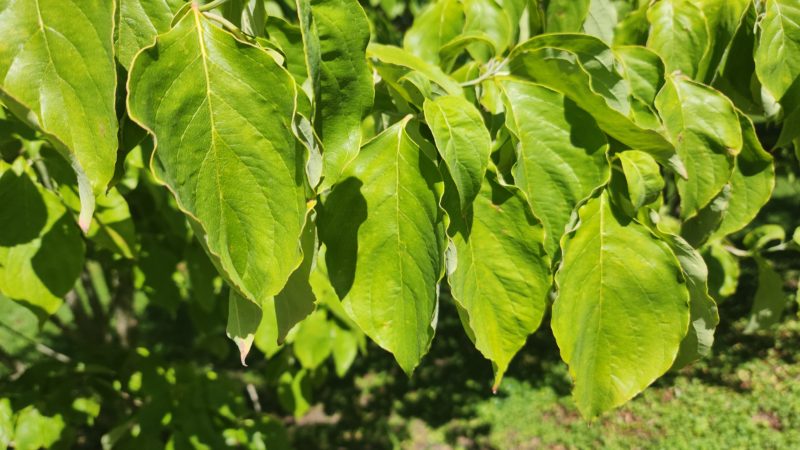FOR IMMEDIATE RELEASE
Contact: Kim Erndt-Pitcher, Prairie Rivers Network, kerndt-pitcher@prairierivers.org
New Data Confirms Widespread Herbicide Pollution in Champaign Urbana
Community Leaders Tour Areas Affected by Herbicide Damage
Prairie Rivers Network and the Save Our Trees Coalition today released test results from an independent lab that detected herbicides in trees throughout the Champaign-Urbana community. Prairie Rivers Network led city officials and staff on a walking tour of two sites where tree samples were taken, Carle Park in Urbana and near Willis Park in Champaign, to educate leaders and bring awareness to the community.
Herbicides used in agriculture and lawn care were detected in all leaf samples taken from trees throughout Champaign-Urbana, with multiple herbicides detected on each tree. Tree tissue samples were taken on the perimeter of town near agricultural lands and in the urban interior, including on trees located on or near school grounds, public boulevards, and in or near city parks. Samples were taken from properties with no evidence of on-site chemical lawn care, illustrating some herbicides’ tendency to drift. The lab results highlight the dangers herbicide pollution poses to the health of our trees, specialty crops, gardens, and communities.
“Over the past six years we’ve documented symptoms of herbicide exposures in trees all across the state, but today’s data puts the spotlight on Champaign Urbana,” said Kim Erndt-Pitcher, Director of Ecological Health at Prairie Rivers Network. “In Illinois, we have a constitutionally guaranteed right to a healthful environment, and herbicide pollution violates that right, endangering the future of our kids, our communities, our trees, and our wildlife. We are calling for meaningful actions to be taken, at every level of government, to stop herbicide pollution and protect our communities.”

Two samples were taken at the Bluestem Hall Nature School and Barnhart Prairie Nature Preserve, both indicating the presence of herbicides. Abbie Frank, Executive Director of Bluestem Nature School attended the morning tour and described her experiences having to quickly escort children indoors when herbicides being applied to nearby fields drifted onto her property.
“Our nature-based program is designed to cultivate magical, respectful, and wondrous connections between children and their natural environment,” said Abbie Frank. “How can we do this if we are literally running indoors to escape the chemical drift in our community? It raises the question–who has the rights to air quality and the answer is clearly not in favor of our smallest citizens.”
Drifting herbicide pollution hinders our ability to combat climate change as it injures, weakens, and contributes to the premature death of our carbon-sequestering trees and plants. Herbicide pollution impacts the food we grow; the water we drink; the trees and plants around our homes, schools, and parks; and the state’s already imperiled wildlife. Prairie Rivers Network is using the findings to raise awareness and call for actions to address the problem. Both Champaign and Urbana have received the designation “Tree City USA.”
Tissue sample data, photos, and tree sample map are available upon request.
At Prairie Rivers Network (PRN), we protect water, heal land, and inspire change. Using the creative power of science, law, and collective action, we protect and restore our rivers, return healthy soils and diverse wildlife to our lands, and transform how we care for the earth and for each other. PRN is the independant Illinois affiliate of the National Wildlife Federation.







